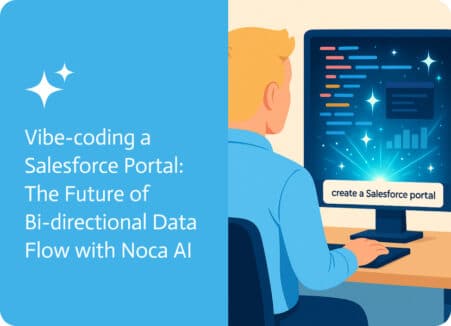

AI Exam Prep: Getting A Hand From Artificial Intelligence
Let’s unpack that anxious charge of energy that takes over you when you know you’re about to write an exam. Damp hands, rehearsed notes, and that awful feeling of knowing you should not have devoured all episodes of “Space Caterpillars” last weekend and instead studied. It happens to all of us. But now, there is adifferent type of software out there designed to assist you in preparing for exams without frying your mind in the process.
No, we do not mean yet another boring quiz or a flashcard generator on some spaced-out idea. This is smarter, faster, and far more tailored to your personality. We now have access to digital tutors that never sleep, that are perpetually patient, and will never passive-aggressively sigh if you ask the same question five times over.
So, What Is Going On Actually?
It all boils down to a system recognizing patterns: how questions are sequenced, which attempts receive feedback, and how different learners tend to struggle or succeed. These systems are capable of processing mountains of prior exam papers, curriculum material, scholarly articles, and even lectures and their notes.
They identify patterns and explain topics in as many as ten different ways, particularly tailored for visual learners, list enthusiasts, or those who need three analogies and a pop culture reference to grasp anything.
For illustrative purposes, I’ll outline the primary functions of the tools:
1. Individualized Study Schedules
No more stamp schedules. These systems consider your results in prior assessments, your current standing, and even your hours of procrastination scrolling instead of studying. From that, they devise a responsive strategy. Because every plan goes into effect and is adapted in real-time, if you decide to “slack off” it will notice and respond accordingly. Accelerate? It readjusts. Think of it as having a guidance counselor who is also a drill instructor on mute.
2. By the Minute Educations
So, you’ve somehow decided to tackle photosynthesis at 3 a.m.? Don’t worry, just ask, and you’ll get an explanation that is better than any textbook. The best systems allow you to switch from preschool to PhD-level teaching on a whim. It’s like a vending machine for explanations that you can customize to fit your mood.
3. Self-Generated and Adaptive Lesson Workouts
Unlike archaic static worksheets that blindly dish out questions like darts in the dark, these tools create exercises from what you already know. Adaptive assessment tools increase challenge progressively, pinpoint your weak areas, provide adequate reinforcement, and apply spaced repetition so you don’t forget everything the moment you enter the exam room.
4. Get Marked Mock Exams with Constructive Feedback
You don’t receive just a sad face with a red X marking your answer. These systems tell you where you went wrong, what thought process you were using, and what steps you should take next to avoid those mistakes in the future. No judge-y eye rolls or teacher sneers that say, “Did you even read the question?” All of the feedback, whether laughable or insulting, is absent.
What’s Good About It?
Speed: Warp Drive for Your Brain
Time is a precious commodity when you’ve got six subjects, three essays, two panic attacks, and one cup of coffee to get you through the night. Enter machine-guided prep tools. They scan what you know, figure out what you don’t, and start patching those holes at lightning speed.
Instead of spending three hours reviewing the photosynthesis process (again), these systems clock that you’ve already nailed the basics and push you into more advanced territory. They cut the fluff and serve you the good stuff: lean, focused learning that respects your time and doesn’t make you feel like you’re stuck in a remedial loop.
Reliability: 24/7 Availability and Always Happy
Studying during strange hours? No judging here. Whether it’s Sunday at 3 AM or Wednesday at 3 PM, these tools will always be awake and are happy to assist. They don’t reply to requests with “Let’s take this tomorrow, yeah?” Unlike human tutors, they never cancel appointments and do not get sick or lose focus while explaining long division.
Your study sessions don’t need to be tense and won’t be disrupted by mood fluctuations, weather, or repeat requests to explain the difference between meiosis and mitosis. Everything is covered without skipping, “uh-oh, no time,” steady progress is made every single time.
Assessment: Nice Yet Brutally Honest
Do you remember the time when your teacher gave you a test back and, simply with a sad face, said; “Try harder next time”? A little guidance sure does help, and not like tools that go full detective mode. They don’t stop at just fining you, they do not simply finger wag, they too sometimes calmly walk you through the mistake.
You get instant insights: This is where you went off track. This is what you were most likely thinking. Here is how to fix it next time. There’s no need to wait three days for marks on your homework or wonder why your essay didn’t score higher. Educators can pause the lesson, return to it for a review, and provide real-time feedback.
Equity: Everyone is Welcome to Sit at the Smart Table
To be honest, education has never been equitable. An elite prep center with tutors costing $100 per hour is accessible to some students, while others are cramming during their shifts, borrowing textbooks, or relying on free PDFs that may or may not be in the right language.
With the right tools and a decent internet connection (even a dodgy one), high-quality exam prep is accessible to everyone.
Whether you are crammed into a city’s bustling apartment, relaxing in a village with two cows and a satellite dish, or escaping to the bathroom to hide from siblings, the experience remains sharp.
No need for gatekeeping. No need for paywalls of doom. Just organization and information, provided to anyone who desires it.
Adaptability: A Study Plan With A Thoughtful Approach
This one is a little different. These platforms don’t give you a cookie-cutter lesson plan. They observe how you learn, how and when you skip, what you master, and what makes you contemplate hurling your notebook out the window. Strategies are adjusted to fit your personal learning journey.
If you are a master in algebra but struggling with geometry, don’t worry, there are more triangles for you. And if the system sees improvement with a previously challenging topic, it reluctantly eases off and incorporates a new challenge. It works like a clever algorithm that alters the exercise every time you reach a new milestone and never gets tired of the game.
Gamification: No Longer Syncs Studying With Chores
Studying sits in that category, resembling ‘watching paint dry in never-ending slow motion.’ The newer tools are solving that, they adapt the struggle to make it enjoyable. Points are awarded, swag can be earned, streaks can be unlocked, and leveling up becomes conceivable. Like with almost every video game, mini-rewards are earned after achieving goals.
Progress Tracking: A Fitbit for Your Mind
With this type of application, you can visualize your growth with tangible data that tracks your progress. Your accuracy, improvement speed, time spent on each topic, and even procrastination are all tracked on dashboards. It’s wonderfully nerdy; watching your score climb while your weak areas slowly vanish is immensely satisfying.
What Could Go Wrong?
Let’s not sugarcoat it; there are a few caveats.
1. Over-Reliance
Just like over caffeinated energy drinks, too much of a good thing can backfire. Relying solely on the software without engaging your own brain can lead to passive learning. You feel productive but aren’t actually learning. Think of it like watching fitness videos without ever doing the push-ups.
2. Shallow Understanding
These systems can’t always detect whether you’re just memorizing patterns or actually grasping the core ideas. You might ace practice questions but freeze in an exam if the question is worded differently.
3. Blind Spots
Even the smartest systems depend on the data they’ve been fed. If they haven’t been trained on your specific syllabus, they might focus on irrelevant material, or worse, skip key concepts entirely. Garbage in, garbage out.
4. Cheating Temptation
When a tool can instantly solve math problems or write essays, it’s tempting to use it for shortcuts, and that’s fine if you’re just checking your work. But when it becomes a crutch, your actual skills take a nosedive. No app will sit the exam for you. (Yet.)
Wild Cards and Weird Possibilities
This whole setup opens the door to some quirky outcomes:
- Hyper-personalized exams? If everyone trains using these systems, test creators might have to get more unpredictable. Imagine being tested not on what you know, but on how you learn.
- Tutor obsolescence? Not quite. The best learning still involves human insight, mentorship, and context. But expect human tutors to lean heavily on these tools or risk becoming digital dinosaurs.
- Emotional burnout? Constant reminders, gamified nudges, and digital feedback loops can make students feel like they’re living inside a productivity tracker. There’s a fine line between helpful and hyper-stressed.
Should You Use It?
If you’re prepping for big exams and feel like traditional methods are failing you, or you just want to be more efficient, these tools can be game-changers. But don’t hand over the keys to your brain completely. The best results happen when the machine helps you work smarter, not when it does the thinking for you.
So, plug in, fire it up, and use that algorithmic sidekick wisely. Just maybe also grab a real book now and then. You know, for nostalgia.
Supercharging Study Sessions with an AI Agent Worker
Modern exam prep isn’t just about software that quizzes you—it’s about having a persistent, intelligent companion guiding your learning. An AI agent worker can analyze your study habits, track performance, and adapt exercises in real-time, essentially acting like a personal tutor that never sleeps. From generating custom practice questions to identifying weak points in your understanding, the AI agent worker ensures every minute spent studying is optimized for results, helping students stay ahead without burning out.
Final Word
Exam prep has changed. The tools are sharper, faster, and weirdly helpful, as long as you don’t use them like a student version of autopilot. Think of them like the R2-D2 to your Luke Skywalker. They can’t fly the X-Wing, but they sure make it easier to hit the target.
And remember, even the smartest machine can’t save you from a bad breakfast and a forgotten calculator. That part’s still on you.


